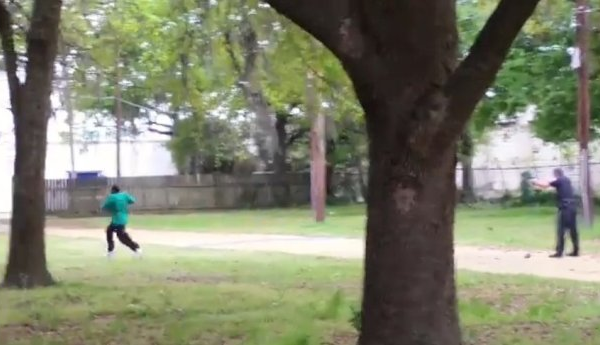
A white
South Carolina police officer was arrested and charged with murder Tuesday after a video showed him fatally shooting a fleeing, unarmed black man in the back.
The video shows North Charleston Police Officer Michael T. Slager, 33, firing his service weapon eight times at 50-year-old Walter Scott, who was fleeing the officer after an alleged confrontation on Saturday during a routine traffic stop for a broken tail lamp.
The initial traffic stop itself may have been illegal. South Carolina Code
only requires one working tail lamp. Automobiles are not required to meet inspection to a tag renewal. Some have speculated that it was Scott, a black man driving a Mercedez Benz, who drew the officer’s suspicion. Of more than 22,000 traffic stops in 2014 in North Charleston, 16,730 (76%) involved African Americans, much higher ratio than the city's 47 percent black residents. Two-thirds of stops that failed to produce a ticket or arrest involved black drivers.
There would have been no murder charges if a citizen reporter had not used his cell phone to video record North Charleston Officer Michael Slager shooting the 50-year-old unarmed black man, in the back, as many as eight times.
What if there had been no video? What if the incident had just been a situation where another unarmed black man was killed and the police officer wrote in his report, ‘this black man is dangerous,’ ‘he grabbed my taser,’ ‘I was afraid for my life,’ and ‘I had to shoot him to protect my life.’
But the video, taken by a citizen reporter, gives witness to such a police report.

The concept of citizen journalism (also known as "democratic" journalism) is based upon citizens playing an active role in the process of collecting, reporting, analyzing, and disseminating news and information.
The proliferation of smartphones and social media empowers citizen reporters to take video while giving rolling commentary on live events, which they can immediately post and tweet online. Armed with smart video phones, and first-person accounts, citizen journalists are now capturing major news events and spreading the word by posting information on social media networks, blogs, and personal websites.
Citizen journalism has significantly created new opportunities and changed mainstream media in different ways. Citizen journalism has proven itself to be an effective part of news reporting and an asset to journalists and editors. As traditional newsrooms become more constrained by fewer and fewer staff reporters due to wave after wave of budget cuts, the availability of citizen journalist created content is an increasingly important source of news leads for mainstream news organizations.
Not only is citizen journalism effective for its immediacy but also people are telling their stories, where they live. When people who have known poverty, misfortune or injustice first-hand are authors of news, the world represented in the news expands and changes. A white South Carolina police officer arrested and charged with murder because a citizen reporter recorded video of him fatally shooting a fleeing unarmed black man in the back is yet another example of how digital technology can expand democracy.
 Pew Research Center
Pew Research Center







